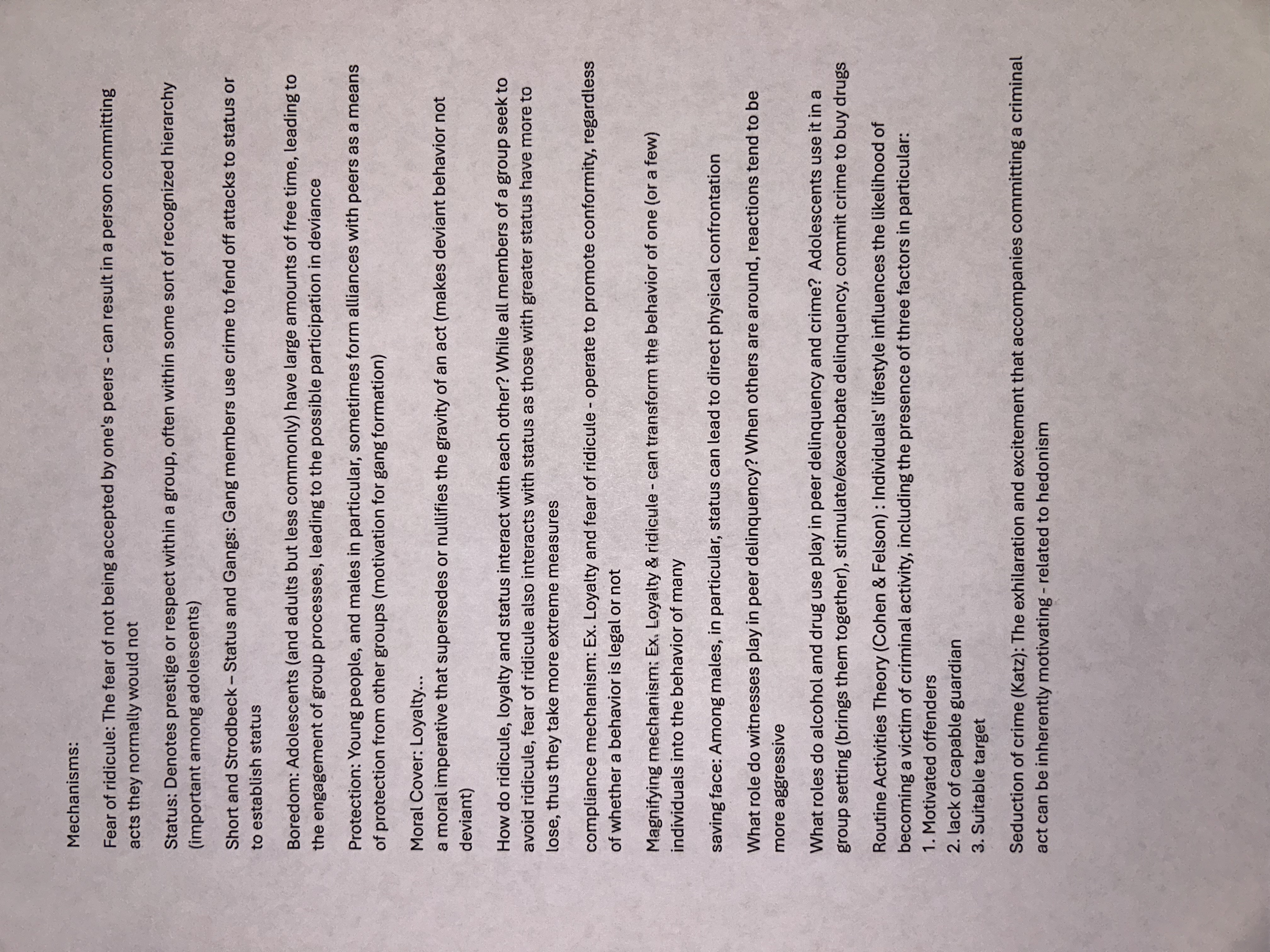What mechanisms influence peer behavior and delinquency in adolescents, including fear of ridicule, status, loyalty, and the roles of substance use?

Understand the Problem
The text outlines various social mechanisms that contribute to peer behavior and delinquency in adolescents, discussing aspects like fear of ridicule, status, loyalty, and other influences on criminal behavior. It seeks to explore how these factors interact and impact group dynamics and individual actions.
Answer
Mechanisms influencing peer behavior and delinquency in adolescents include fear of ridicule, pursuit of status, loyalty, group protection, boredom, and the roles of substance use as a magnifier and facilitator of deviance.
Answer for screen readers
More Information
These mechanisms often interact, amplifying their effects. For example, fear of ridicule combined with the pursuit of status can escalate behaviors, while substance use can serve as both a common activity that cements group bonds and a motivation for criminal acts.
Tips
Common mistakes include overlooking the interplay between different mechanisms and underestimating the role of context, such as free time or environment, in facilitating delinquent behavior.
Sources
- What Adolescents Do or Say to Actively Influence Peers - journals.sagepub.com
- Family Process and Peer Influences on Substance Use by ... - NCBI - ncbi.nlm.nih.gov
- Peer Pressure, Peer Prevention: The Role of Friends in Crime and ... - researchgate.net
AI-generated content may contain errors. Please verify critical information